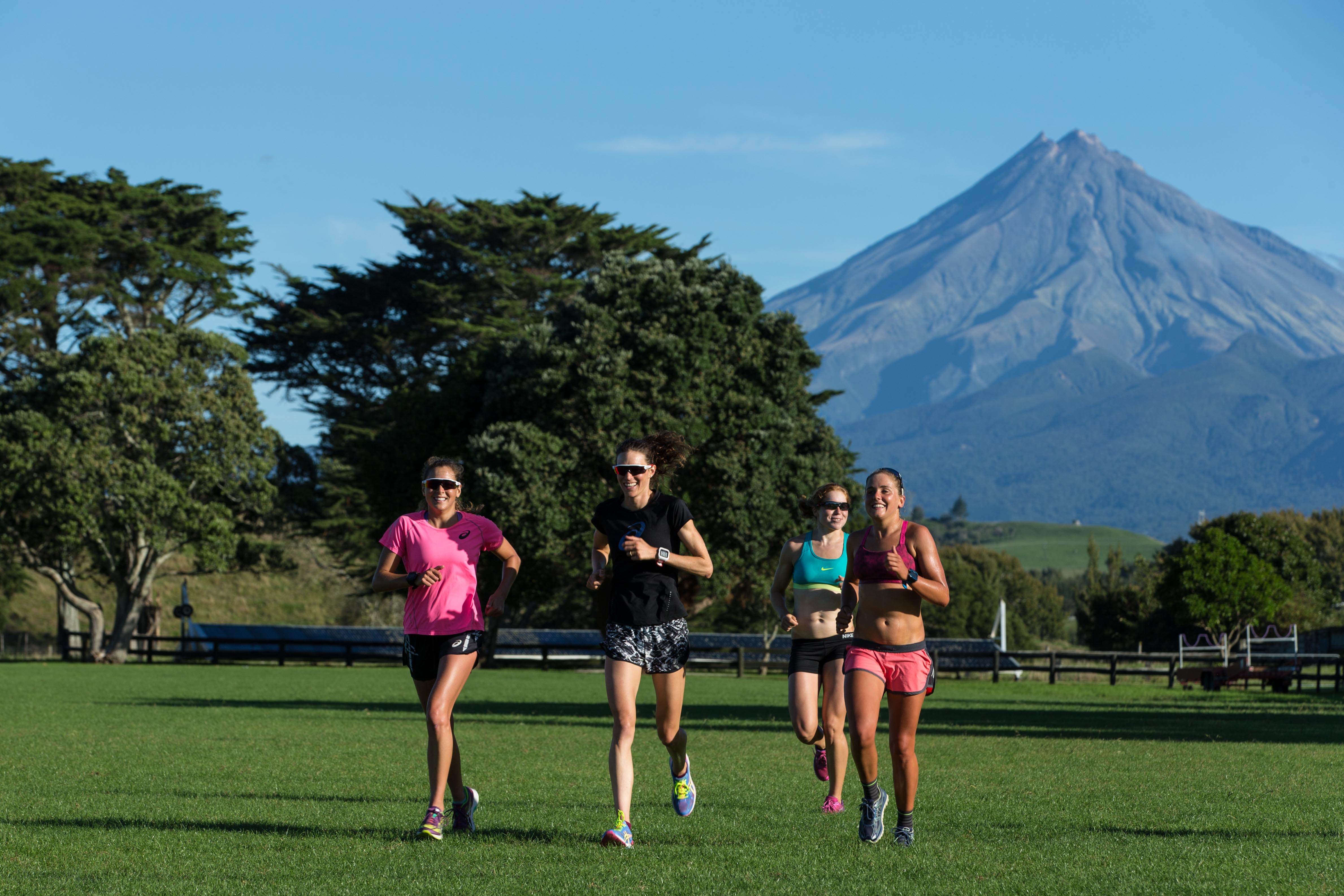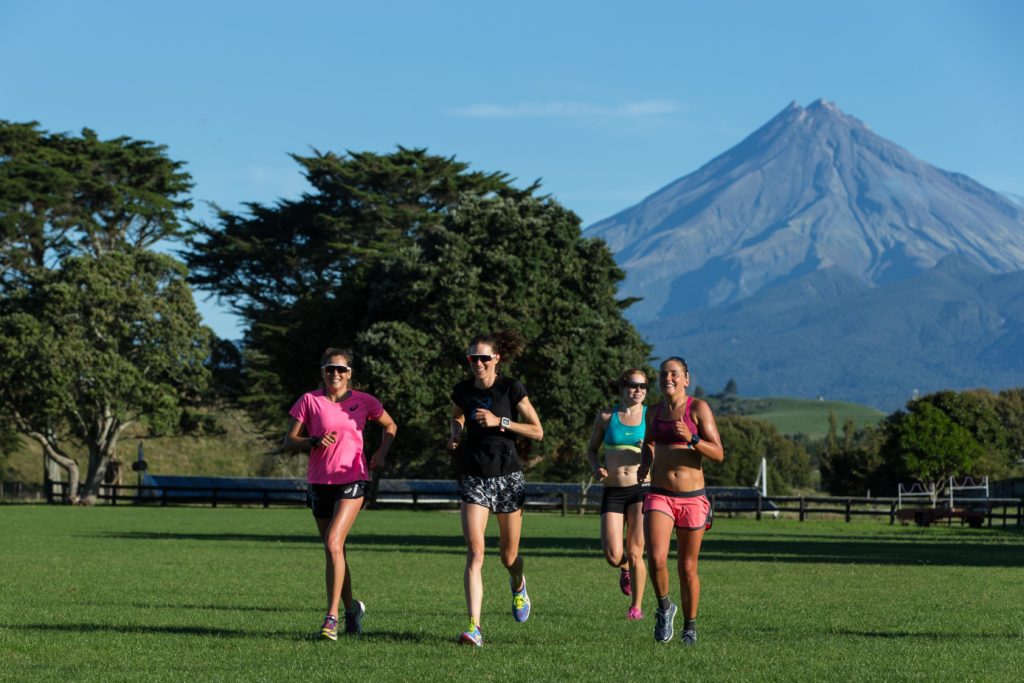Unfurling the Magic of the Wollongong Wizards


In sunny Australia, amidst the aroma of fresh coffee at Diggies Café on picturesque North Wollongong Beach, a group of the world’s best young triathletes replenish and relax after a hard morning swim.
Watching over the group, who have adopted the unofficial moniker of the ‘Wollongong Wizards,” is Team Canada National High Performance Coach, Jamie Turner, a New Zealander who now calls Australia home. In the late 1990’s Turner earmarked the beachside mecca of Wollongong as an ideal locale to train a squad of elite triathletes. In quick time Turner began to assemble a montage of athletes looking for a home-base that boasted both an ideal climate, world-class infrastructure and a competitive, but welcoming, group training ethos. Word spread of this new training ground with its immense natural beauty, along with the group dynamics and the high quality “all substance, no fluff” style of coaching.
Prior to teaming up with Triathlon Canada in November, 2013, Turner worked with Triathlon Australia. But after the London Olympics in 2012 the Australian governing body banned national coaches from working with foreign athletes, which prompted his resignation. He believes that a multinational training group offers a better course toward future success.
“It’s a fusion model,” he says. “There’s a recent trend where many of the consistent medalists are coming from a multinational environment.”
Make no mistake, it’s still a tight-knit group, but it’s less familiar than a domestic training squad which breeds a sense of self-reliance. This fusion model appears to provide the ideal balance of unfamiliarity, ownership of performance, as well as direct athlete support in a competitive and stimulating daily-training environment.
In amongst the tanned faces of today’s squad are Canadians Tyler Mislawchuk, Sarah-Anne Brault, Amelie Kretz and Alexis Lepage. Brother and sister, Russell and Ellen Pennock have also trained with the Wizards for a time. Alongside several young Aussie elites including Ryan Bailie – who has already secured his spot at the Rio Olympics – is Gwen Jorgensen, the 2014 and 2015 ITU World Triathlon Series champion and one of triathlon’s new breed of bona fide superstars. She came half way across the world to join Turner’s group after the London Olympics because she wanted to be, in her own words, a “complete triathlete.’’
“I really liked the group atmosphere where everyone encouraged and pushed each other,” she says. “To be at the world level I needed that daily training environment.”
To his credit, Turner has harnessed a disciplined, competitive yet jovial atmosphere within the squad. He is big on individual responsibility and requires all athletes take ownership of their careers.
“I don’t expect the athletes to make a contribution to anyone else’s environment. Everything has to be for the individual’s betterment.”
His methods embody a long-term approach that pays a lot of attention to specific, individualised detail. There’s not necessarily a goal to create a team environment or dynamic. Rather than homogenizing the group, each athlete gets treated as a single entity. They need to take ownership of their training. Turner suggests that, rather than raw talent, success comes from “the athlete taking control and making change happen as a result of a strong work ethic.”
Attribution Theory is the cornerstone of Turner’s coaching philosophy.
“So many athletes externalize the performance. They don’t own it, and they attribute shortcomings to things they can’t control,” he explains. Doing so inhibits the athlete from identifying those key areas where they can improve. Attribution Theory paves the way for athletes to practice how, and where, they can impact the outcome of races. Turner uses this simple problem solving task to illustrate:
“The water is 24 degrees, it’s 26 degrees outside, and there’s no shade… Go!” The athletes have to consider all possible scenarios and come up with the best possible solutions in real time.
Turner also has his athletes work on what he calls “betterment,” where each athlete is focuses exclusively on the components of the skill they need to improve. It might be certain elements of the swim stroke, or bike technique, or run posture and form.
Training Paradise
The Wizards use the 50 metre pool at Wollongong University four times per week. Once every week they hit the spectacular outdoor continental pool, an iconic Wollongong landmark set amongst the most popular surf beaches of Wollongong. On Friday mornings they enter the surf for an open water swim at North Wollongong beach, testing their drafting and navigational skills in water that can be calm one day or a cascade of fast moving blue and tumbling whitewash the next.
For cycling the Wizards utilise the scenic roads of local National Parks, nearby Mt. Keira, which offers a steady 6km climb and they join a group of local cyclists for a weekly Saturday long ride of about 90km which often heads south into the rolling green hills of Kiama and Jamberoo. Turner also has his squad ride track bikes at a nearby velodrome twice per week for strength, technique, outright speed and a two-wheeled variation to their regular training regimen.
When it comes to running, Turner leads the Wizards (on his small motorbike) along the coastline to the north through a stretch of open beaches known as Pucky’s. This ideal flat, fast stretch of beach offers soft sand underfoot as the surf roars and the sun typically shines bright overhead. Trail runs up the escarpment at Mt Ousley and the Illawarra Escarpment offer up some serious hill climbing and lactate effort. For track sessions the group uses nearby grassed fields where Turner sets up a makeshift 500m track and the tartan track surface of Beaten Park Leisure Centre. Run sessions with local running club, the Kembla Joggers, are a regular fixture as well.
The Wizards train and compete all over the world as an international collective of athletes. Their home bases are in Spain and Australia and they spend the balance of their time either competing or recovering at home.
Thanks to all the hard work in this down-under training mecca, Turner’s athletes are likely to enjoy success in Rio and beyond. In the meantime, though, Diggies Café remains the spiritual headquarters of the Wizards, with the scent of coffee, baked goodies and Aussie sand and surf billowing in and around the banter of young Canuck hopefuls playing out their triathlon dreams.
Kerry Hale is a regular contributor to Triathlon Magazine Canada.
This story originally appeared in the July 2016 issue of Triathlon Magazine Canada.
